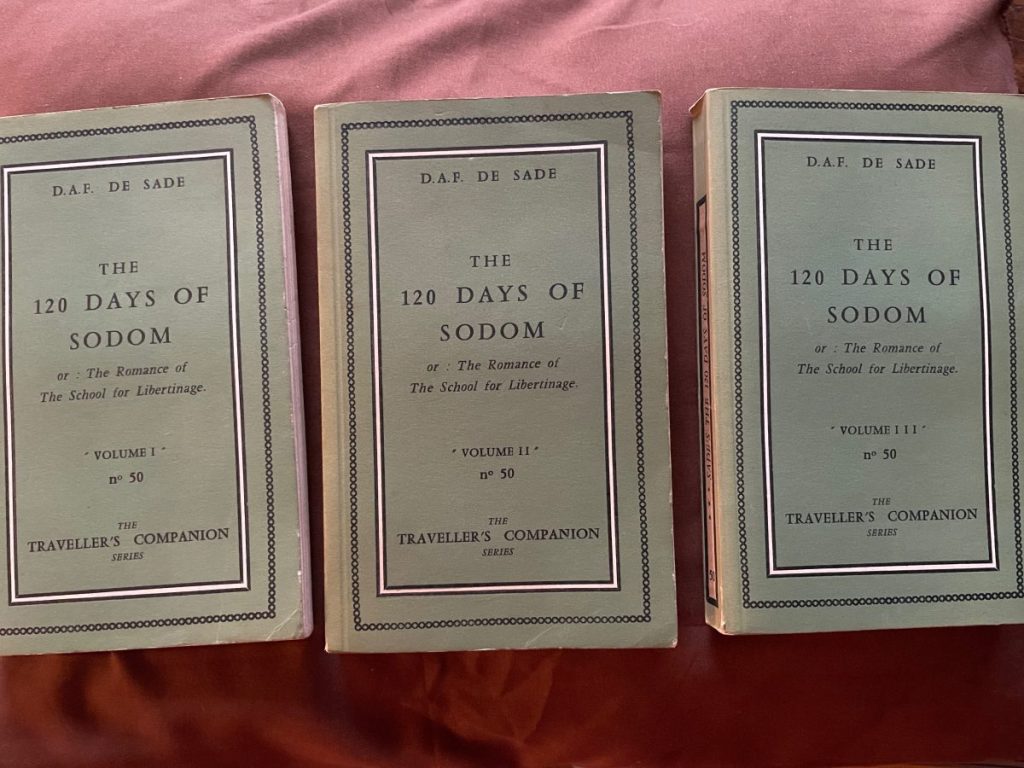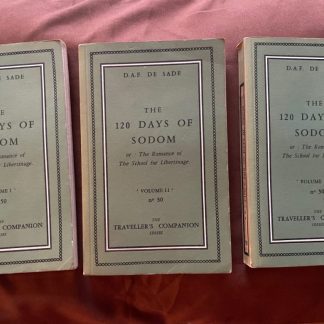Description
3 volumes of The Traveller’s Companion Series #50, published in 1957 by Olympia Press (France). Condition is remarkable good. No foxing and as seen, only slight yellowing on the spine from sun. What appears as toning on the back page is a shadow. Paperback. The following info is copied from Wikipedia (under the category of “you can’t make this stuff up!”).
The 120 Days of Sodom, or the School of Libertinage[1] (French: Les 120 Journées de Sodome ou l’école du libertinage) is an unfinished novel by the French writer and nobleman Donatien Alphonse François, Marquis de Sade, written in 1785 and published in 1904 after its manuscript was rediscovered.[2] Described as both pornographic[3] and erotic,[4] its plot revolves around the activities of four wealthy, male libertines who, in the four months of one winter, attempt to seek out the ultimate sexual gratification through orgies, sealing themselves away in an inaccessible castlein the heart of the Black Forest in Germany with a harem of thirty-six victims, mostly male and female teenagers.[5] During this, they engage four female brothel keepers to tell the stories of their lives and adventures; the crimes and tortures in the women’s narratives inspire the libertines to similarly abuse and torture their victims, which gradually intensifies, increases in violence, and ends in their slaughter.
The novel was never completed; its first chapter was written according to Sade’s written plan, but the subsequent chapters are in the form of rough drafts and notes, often consisting of graphic descriptions of the novel’s scenes. Sade wrote it in secrecy while imprisoned in the Bastille in 1785; shortly after he was transferred elsewhere the Bastille was attacked by revolutionaries, leading him to believe the work was destroyed, but unbeknownst to him it was instead recovered and preserved by a mysterious figure and subsequently handed over to a multitude of people, culminating in its publication in 1904.[2] It was not until the latter half of the 20th century that it became more widely available in countries such as the United Kingdom, the United States and France.[3] Since then, it has been translated into many languages, including English, Japanese, Spanish, Russian, and German. It remains a highly controversial book, having been banned by multiple governments such as in the UK in the 1950s,[6] but remains of significant interest to students, historians and literary critics.[2] In 2016, a contemporary English translation of the novel was published as a Penguin Classic.[6]










